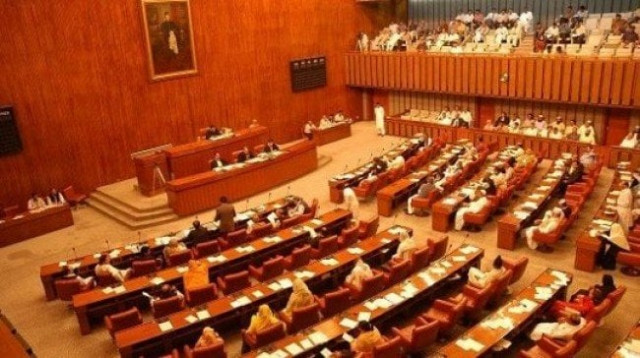Enhancing Social Safety: The Future of BISP and Pakistan Baitul Maal
In a recent meeting in Islamabad, the Senate Standing Committee on Poverty Alleviation & Social Safety took significant steps to bolster the Benazir Income Support Programme (BISP) and Pakistan Baitul Maal. Chaired by Senator Sardar Al Haj Muhammad Umer, the committee discussed the pressing need for increased resources and institutional support to enhance these crucial initiatives aimed at alleviating poverty in Pakistan.
The committee featured members like Senators Dost Ali Jeesar and Rubina Qaim Khani, who engaged in a thoughtful dialogue about the performance of BISP and Baitul Maal. Also present was Senator Rubina Khalid, the Chairperson of BISP, who provided insights into the current situation. She highlighted that BISP is currently operating with a number of officers on deputation from the Education Department—11 officers of Grade-19 and above. This arrangement, however, has raised concerns about operational gaps in their parent departments.
Senator Khalid pointed out that financial constraints from the Finance Division are hindering new appointments at BISP, which could enhance its functionality. The committee has unanimously agreed to request the finance minister’s presence at the next meeting to discuss the budget for new hiring. It’s clear that without adequate staffing, the program may not reach its full potential.
One of the core issues discussed was the registration process for beneficiaries. Senator Khalid affirmed that BISP is known for its transparent eligibility criteria based strictly on poverty parameters. There are no recommendations or political favors involved—just a firm commitment to helping those in need. This integrity has garnered international recognition, with several countries looking to Pakistan to learn from its model.
The committee members also examined the Benazir Nashonuma Programme (BNP), a partnership with the World Food Programme that aims to provide vital nutrition and healthcare for children. The programme has shown promising results, boasting a reported 6.4% reduction in food scarcity, a clear sign that such initiatives can make a significant difference in the lives of many.
The discussions in this committee meeting highlight the ongoing commitment to lifting people out of poverty and ensuring that social safety nets in Pakistan are robust, transparent, and effective. While challenges remain, the collaborative effort among policymakers is commendable.
By focusing on these initiatives, we can be hopeful about a future where social safety is not just a dream but a reality for countless families. If you’re interested in learning more about poverty alleviation strategies and their impact, feel free to connect with us at Pro21st. Together, we can explore ways to contribute to a more equitable society.
At Pro21st, we believe in sharing updates that matter.
Stay connected for more real conversations, fresh insights, and 21st-century perspectives.





